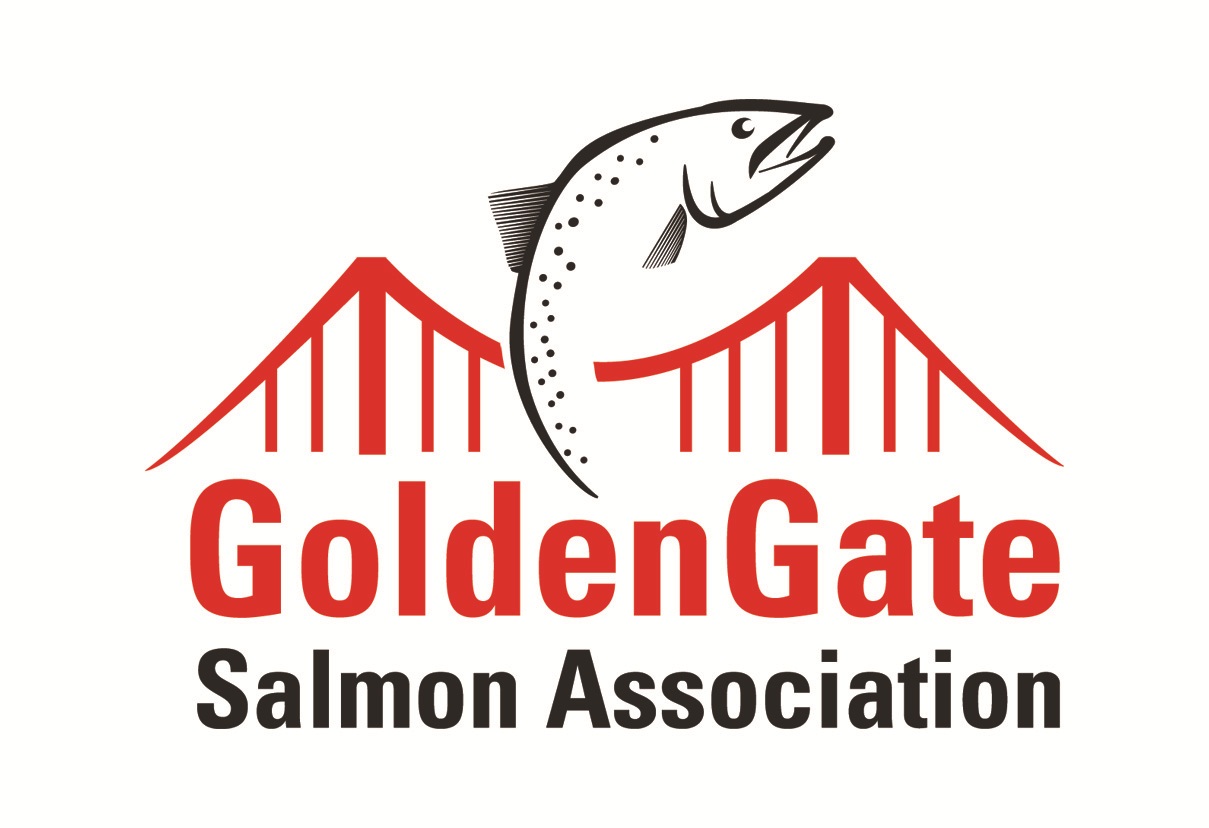GGSA Gearing Up For Recreational Salmon Season
The following press release is courtesy of the Golden Gate Salmon Association:
The Golden Gate Salmon Association (www.goldengatesalmonassociation.com) welcomes the opening of the 2018 sport salmon fishing seasonSunday, June 17 in coastal waters south of Horse Mountain in southern Humboldt County. Recreational anglers will be allowed to catch two salmon per day that are at least 20 inches long. Commercial salmon season will open in the same waters the last week of July. Commercial salmon are currently being taken in the far north of the state with some fresh salmon finding their way to local markets and restaurants.
Sport salmon opened in May from Monterey Bay south. It opened June 1 in waters off Eureka and sport boats there have been reporting good catches of salmon.
The sport and commercial salmon fishing seasons this year are considerably shorter than normal due to concern over impacts to fall run king salmon. Fishing is being allowed in bits and pieces along the coast this year in a design intended to avoid harming fish still recovering from damage done during the recent drought. Hatchery bred salmon are likely to make up the majority of the catch this year as natural origin salmon stocks rebuild. Even so, many sport anglers are looking forward to what could be decent fishing in spite of a lukewarm prediction from the Pacific Fisheries Management Council. Recent reports indicate good conditions for salmon exist in offshore waters from at least Monterey to Bodega Bay and points further north.
“We could be looking at a pretty good season once we finally get going,” said Golden Gate Salmon Association president John McManus. “There should be good runs of mature hatchery origin fish waiting to be caught and they taste as good as any salmon.”
“Our salmon hatcheries and coastal net pen program have greatly improved in recent years, which should provide a pretty good opportunity for everyone to catch salmon this year,” said GGSA board member, Marc Gorelnik. “Salmon fishing in California provides the public with direct access to the best eating fish on the West Coast.”
“Salmon fishermen have been forced to wait this year in many parts of the state but everyone is now ready to go and looking forward to finally getting on the water,” said GGSA board member Mike Aughney. “Once fishing gets going, all of our coastal communities should see a big uptick in income from anglers flocking from all over the state to get in on our salmon fishing.”
California’s biggest problem facing salmon is a lack of runoff in Central Valley rivers to effectively move poor-swimming baby salmon to the ocean. Under natural conditions, spring snow melt and runoff would flush the baby salmon safely out to sea while giving them some camouflage in muddy, turbulent water. But California’s rivers are anything but natural, with dams on every one of them trapping spring runoff needed by the salmon.
“The Golden Gate Salmon Association is at the table speaking up for the water and habitat needs of salmon and salmon dependent communities,” said McManus. “As long as we get the freshwater needed by salmon, our coastal communities will benefit.”
The Golden Gate Salmon Association (www.goldengatesalmonassociation.com) is a coalition of salmon advocates that includes commercial and recreational salmon fisherman, businesses, restaurants, tribes, environmentalists, elected officials, families and communities that rely on salmon. GGSA’s mission is to protect and restore California’s largest salmon producing habitat comprised of the Central Valley river’s that feed the Bay-Delta ecosystem and the communities that rely on salmon as a long-term, sustainable, commercial, recreational and cultural resource.




